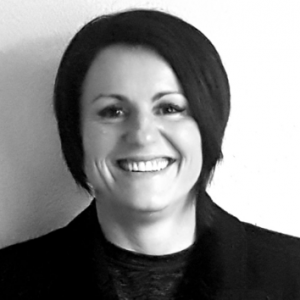

Why do you need a financial advisor?
Q&A with Simone Evans

How can financial planning help you?
I think financial planning is one of those things that helps you set goals, overarching goals; short, medium, and long term ones. Makes you look at where you’re headed. A lot of people will buy assets to grow wealth, but they don’t know why they’re doing that. And how that ties into what they’re trying to achieve long-term.
What are you trying to achieve with a financial plan?
It’s about honing… Remember, you don’t know what you don’t know. It’s about working with your advisor and planning out your strategies on paper, making mistakes on paper, looking at overarching goals and then honing strategies that suit or optimise what you’re trying to do.
Why would you contemplate a financial advisor, if say you already had a good accountant?
They have different roles – accountants generally look backwards at what has occurred in the previous financial year, and they are then working out strategies for compliance, tax and profit management. Conversely, financial planners look forward. For me, in my role, It’s about what are you trying to do going down the road in the future.
This is a big thing that people get wrong in business. They come to me all the time and they’re disappointed in their accountant. But the only reason for that is they don’t know what an accountant does. They think that an accountant is like a financial advisor, should be looking at their figures and saying, “you need to change this and you need to do that.”
There are ‘management’ accountants who can help with planning, but most people aren’t using a management accountant – they are using a compliance and tax accountant.
What is holistic financial planning?
Well, there are different types of financial planners; there are planners that sell products.
We don’t specifically sell products. For me, it is about what holistically is the client trying to do.
How can I help the client in achieving their goals by tying in strategies that help them towards what they’re trying to do that they’re comfortable with.
So it is client first, product last.
And it’s about playing around with strategies and modelling things on paper to give someone an idea, “if I do this, this is where I’ll end up. If I do that, I might end up here.”
But putting it down on paper too. For example, showing them if you did that, this is what that does to your end retirement outcome, in terms of how much income you can draw.
It is about tweaking the strategies as we go along as well, partnering with someone over the long-term because everyone’s circumstances change.
They change regularly. So it’s being there and seeing them achieve what they want to achieve.
What about Superannuation, how can a good financial plan help with that?
A lot of my clients haven’t put money into Super, they put it into a property and think that’s going to be their nest egg, which there’s merit in. However, you also have to think about
the tax effectiveness of Super, when you made a condition of release and you hit age 60 you can access tax-free income.
Any assets that are in the super and any income in the superfund are tax-free.
And if you’ve got capital gains, they are tax-free if you’re selling assets in Super.
I’m talking about a self-managed super fund here, and this is only a general discussion, not specific advice for an individual.
Tell us about a success story you’ve had?
I had a client and I would say he was a middle-income earner, didn’t have a lot of assets came to us with a young family, two young girls, and 90K of credit card debt.
He was about 35 at the time.
He’s now paid off his credit card debt and he’s just put a deposit down on his first investment property.
And his projected outcomes increased significantly. He’s got plenty of time.
But he just had very poor money management habits. And would put everything on credit. He lived on credit.
It is really about having a plan and also about changing the mindset, changing the structure and the way that you manage your money.
That client is now committed to different things instead of just buying because he was getting his enjoyment from buying products. Now he gets it from planning for the future.
We hope that helps you understand the question – Why do you need a financial advisor?
Our professional team can take up the more specific conversations with you directly as they will depend on your situation and your goals.
Speak to our team for more information. Call (03) 9017 3235 or email better@finwellgroup.com.au to set up a no-obligation discussion.
The information in this article is general in nature and does not take your specific needs or circumstances into consideration, so you should look at your own financial position, objectives and requirements and seek financial advice before making any financial decisions.